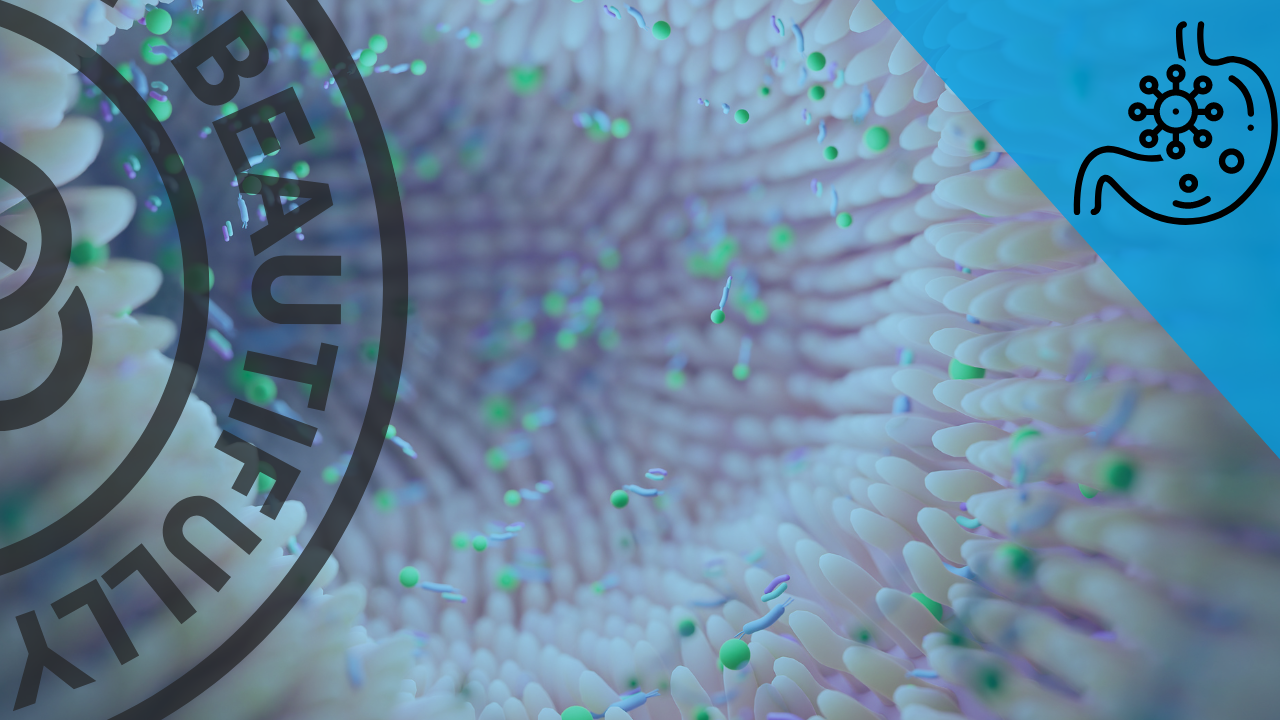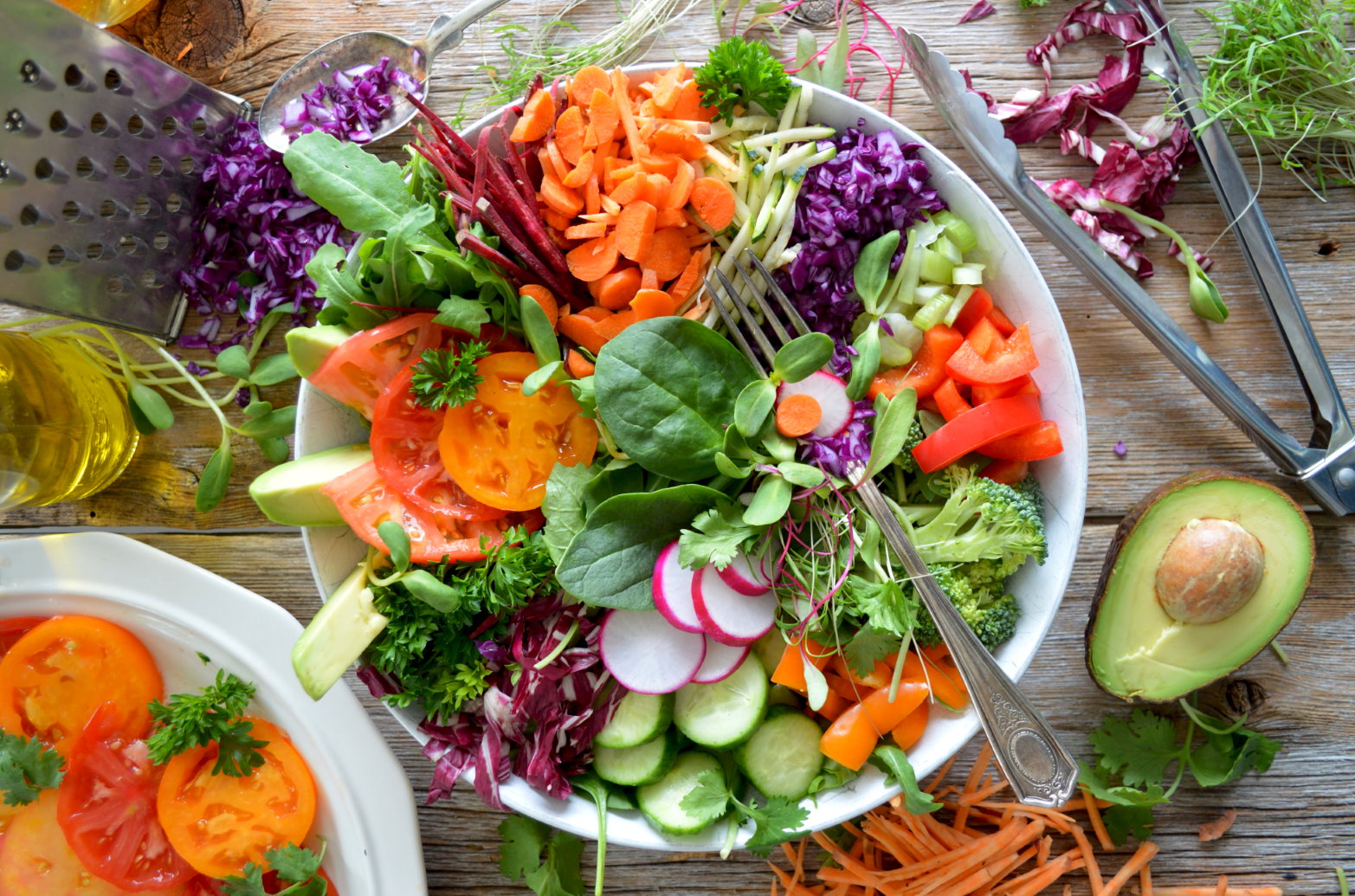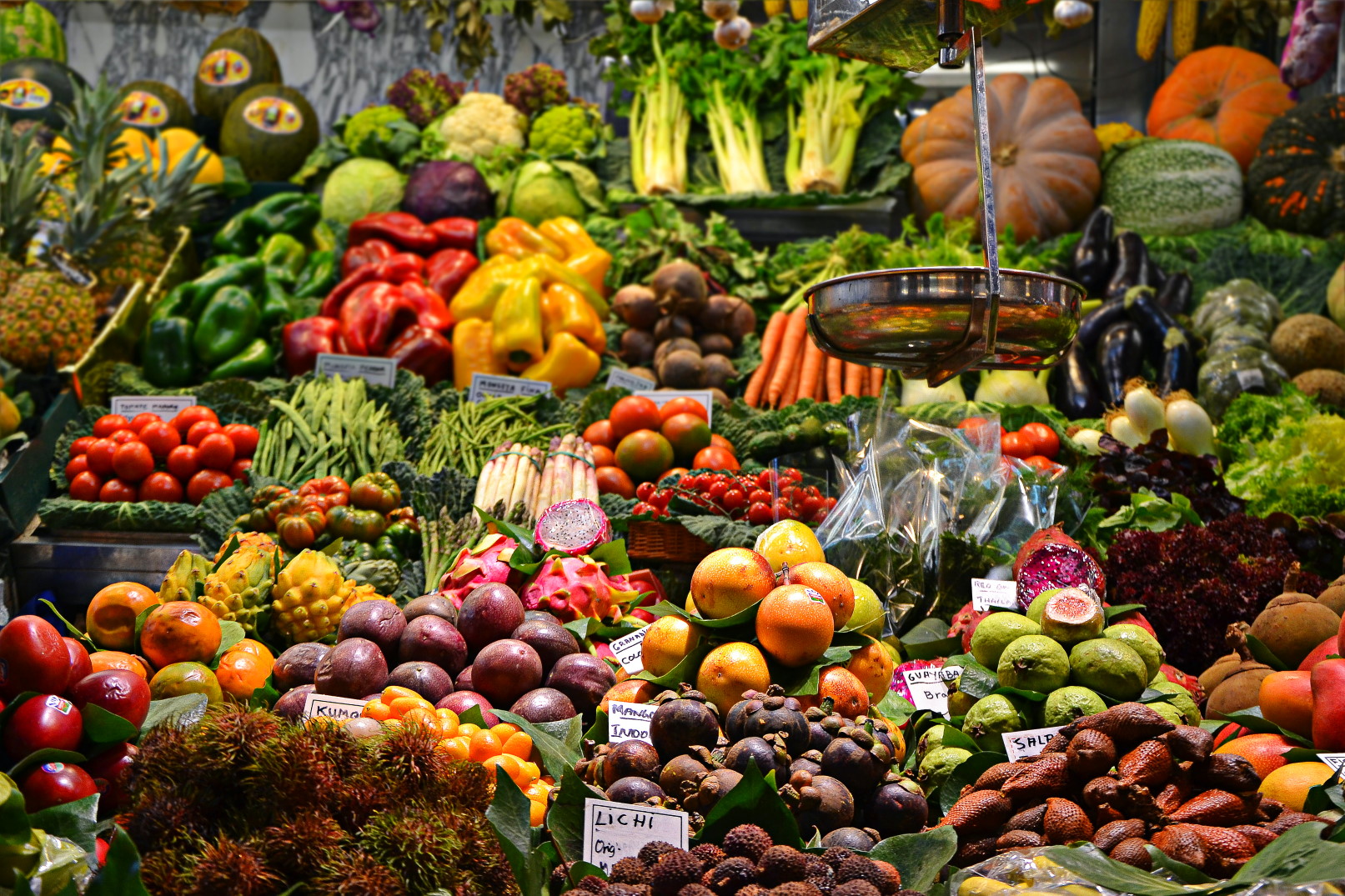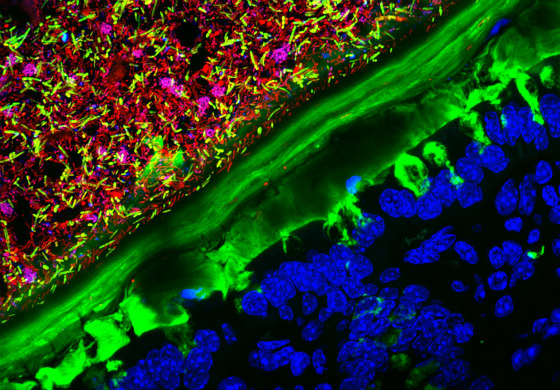9 Best Tips and Hacks for your Gut Microbiome Health
Oct 17, 2022
What is Microbiome?
The Microbiome is the collection of all microbes, such as bacteria, viruses, fungi, protozoa, and their genes, that naturally live on our bodies and inside us.
The fluorescence microscopy image of the microbiota in the colon of a mouse. The green line bisecting the image is the mucus layer of the intestine; the blue cells in the bottom right corner are intestinal cells, and the little “beans” on the top left are the bacteria (Image credit: Kristen Earle, Gabe Billings, KC Huang, and Justin Sonnenburg, source)
Microbiome versus Microbiota
These terms are often used interchangeably. But they have slightly different descriptions.
Microbiome — is the totality of all microbes and their genes in a certain environment (more often, in the whole organism).
Microbiota — is a collection of only microbes (without genes) in some specific organ (intestine, lungs, skin).
How many microbial species exist?
Scientists say that about 1 trillion (1,000,000,000,000) microbial species exist on Earth! [1]
The genomes of only 100,000 microbial species have been yet sequenced.
And only about 1% of those (~1400) can cause diseases in humans! [2]
All other 99% are good or neutral for us!
What is Dysbiosis?
Dysbiosis is the imbalance in the gut microbial community that is associated with a higher risk of diseases.
It is either poor diversity of microbes or an imbalance in key microbial species for humans.
8 Best Tips and Tools for your Gut Microbiome Health
✅ Plant-based Fiber

How to improve your gut health naturally? — Eat lots of plant-based fiber!
That is probably the #1 rule to follow to have a healthy gut microbiome [3, 4, 48].
Plant-based Fiber is the main and the best natural prebiotic. That is the best food for gut health. Your enzymes almost don’t digest plant-based fiber, but your microbes love it and easily digest it.
A gut health diet includes lots of different plant-based fibers. You grow your microbiome with such fiber. The more diverse fiber is — the better for microbial diversity. Each microbial species prefers a certain type of fiber.
So, the more variety in fiber — the stronger your microbial ecosystem — the better your health and resistance!
Main Types of Plant-based Fiber
There are a bit more types, but these six are the most common for humans [3, 4, 46, 47]. All these foods are good for gut health, especially if you diversify them as much as you can!
1. Fructans (inulin and fructo-oligosaccharides)
Sources: fruits and vegetables.

2. Galacto-oligosaccharides (GOS)
Sources: legumes such as lentils, chickpeas, and beans; dairy products.

3. Pectic oligosaccharides (POS)
Sources: citrus peals, mango, apples.

4. Starch
Sources: potatoes, brown rice, cereal grains, root vegetables; pasta, bread, bananas.

5. Non-carbohydrate oligosaccharides (flavonols)
Sources: flavonol-rich foods (berries, cocoa, onions, kale, parsley, tea).

6. Beta-glucans.
Sources: mushrooms, yeast, algae, and seaweed.

✅ Diverse Nutrition

Diversity is the key! A greater diversity of gut microorganisms is directly correlated with gut health and overall health [7, 8, 9, 10, 11].
The diverse gut microbiota helps to:
- Synthesize various beneficial molecules for our health and well-being
- Digest different foods efficiently
- Support a healthy ecosystem of microorganisms, preventing the dominance of certain species
- Strengthen the immune system
- Reduce inflammation in the body
The main advice here — eat diverse foods!
Every week eat something new. New grocery, new restaurant. Find as many favorite foods as you can! And if you really enjoy some food product (and it's healthy, not junk food) — then it’s very likely you and your gut biome need it!
Improving gut health can be an interesting and tasty real-life game!
To maintain diverse healthy gut microbiota:
- eat many various dietary fibers (vegetables, fruits, fermented foods, legumes)
- eat fermented foods to improve gut health (sauerkraut, kimchi, natto, miso, yogurt, kefir, kombucha)
- chose a balanced amount of plant-based and animal protein
- include foods rich in omega-3 and omega-6 fatty acids
- consume plenty of vitamins and minerals
✅ Fermented Food

Fermented foods — are foods made through desired microbial growth and enzymatic conversations of food components [12].
Fermented Foods are a great gut health hack! They contain prebiotics, probiotics, and postbiotics! And can significantly improve your gut and overall health [13, 14].
2020 review of 19 human studies [14] has concluded that foods fermented with Lactobacillus, Saccharomyces yeast, and Bifidobacteria spp. prevent human dysbiosis and optimize immune [15] and metabolic health.
Another 2020 study has shown, that eating fermented food even 1 time a week increases microbial diversity in human hosts. But the best results are observed in those who eat fermented foods 3-5 times per week! [16]
Fermented Foods are the best hack to maintain your gut microbiota health and diversity.
BUT always start with a small amount of fermented food, and gradually increase it. This will help you mitigate bloating and other digestive discomforts that can happen when your microbiome reconfigures and starts fermenting more and changing community members.
So you should take that ramp at your own pace. If something seems to be going wrong, just level off, and stay there for some time.
The best fermented foods for gut health are:
- sauerkraut
- kimchi
- kefir
- yogurt
- natto
- tempeh
- miso
- kombucha
✅ Nature and Pets

Healthy organisms always collect the best microbes — the most useful and most effective.
By interacting with other organisms, you adopt a piece of their microbiome.
This is a great biohack on how to diversify your microbiome and improve gut health!
Get pets, spend more time in nature, eat wild fruits and greens, grow your own, travel — all of these will help you build your own ecosystem of the best microbes, for all occasions!
There are studies that show that those who have household pets have a significantly lower risk of allergies and obesity! And that is thanks to the improvement of the humans’ microbiome with the microbes from domestic dogs! [17, 18]
✅ Sleep

Because the gut flora is highly sensitive to stress (via direct links with the immune system), you need to get enough amount (7-9 hours) of deep sleep each night. It is crucial to managing stress and, consequently, to maintaining a healthy microbiome [19, 20, 21].
And vice versa, the better and more diverse your gut microbiota — the better the quality of your sleep! [20, 22, 23, 24, 25, 26]
❌ Avoid Processed Food

Processed foods are the worst foods for gut health.
The typical Western Diet [28] (high fat, low fiber, higher in processed foods) is terrible for health and doesn’t provide gut microbiota with many of the key essential nutrients.
Moreover, processed food contains a lot of harmful food additives — emulsifiers, preservatives, artificial sweeteners, dyes, pesticides, and many others [29, 30, 31].
Emulsifiers, for example, act like detergents and can disrupt the mucus layer of the gastrointestinal tract.
A 2015 study [32] has shown, that dietary emulsifiers reduce microbial diversity, induce low-grade inflammation, promote colitis, and cause an increase in body fat, higher blood sugar levels, and insulin resistance – key markers of metabolic syndrome.
❌ Avoid Artificial Sweeteners

There is evidence that artificial sweeteners can disrupt the gut microbiome [33].
Saccharin, sucralose, and aspartame significantly shift the populations of gut microbiota [34, 35].
The ingestion of saccharin by animals and humans also showed alterations in metabolic pathways linked to glucose tolerance and dysbiosis in humans [36].
Moreover, some long-term prospective studies raise the concern that the consumption of artificial sweeteners might contribute to the development of metabolic disorders that lead to obesity, diabetes II, and cardiovascular disease [36, 37].
Avoid artificial sweeteners, especially saccharin, sucralose, and aspartame!
❌ Avoid Antibiotics and Preservatives

Don’t use antibiotics without a doctor's prescription!
Antibiotics kill the microbiome not only in the intestines but everywhere they go with the bloodstream [38, 39, 40].
All those beneficial microbes that you have collected over the years can be destroyed in one inadequate course of antibiotic therapy!
Preservatives are essentially the same antibiotics. They are added to products so that microbes do not develop there. When getting into our intestines, they act like antibiotics — they kill the beneficial gut bacteria and lead to gut dysbiosis [41, 42, 43]!
Avoid preservatives and take antibiotics only as directed by your healthcare provider!
If you are taking antibiotics, significantly increase the amount of plant-based fiber in your diet so that the “survivors” can recover quickly [44]. After the course of antibiotic therapy add also fermented foods! [13, 14, 15]
❌ Avoid Over-Sanitizing

Stop panicking! Microbes are good! Out of hundreds of thousands of known microbes species, only 1% cause diseases! All the rest are good or neutral! [2]
By constantly killing the microbes around you, you leave yourself with beneficial bacteria that could make you healthier and your immunity stronger!
Moreover, in conditions of total cleanliness (such as in hospitals), only the strongest and 'baddest' microbes survive, with which you would definitely not want to interact!
Don’t over-sanitize and love your microbiome!
And it will help you stay healthy and happy💗
Summary
✅ Plant-based Fiber
✅ Diverse Nutrition
✅ Fermented Food
✅ Nature and Pets
✅ Sleep
❌ Processed Food
❌ Artificial Sweeteners
❌ Antibiotics and Preservatives
❌ Over-Sanitizing
Bonus
🔥 Here you can find product codes with discounts for some great biohacking products that can help you and your microbiome stay healthy and thrive!
⭐ And here are some amazing Beautifully Broken Podcast Episodes related to this topic:
- #7 Dirty Cheerios for Breakfast? (Apple Podcasts | Google Podcasts | Stitcher | Spotify)
- #14 Kiran Krishnan — The Ultimate Gut Health Guru (Apple Podcasts | Google Podcasts | Stitcher | Spotify)
- #67 Viruses and the Gut Biome Connection with Kiran Krishnan (Apple Podcasts | Google Podcasts | Stitcher | Spotify)
- #76 Dr. Ted Achacoso on smart drugs, methylene blue, and community (Apple Podcasts | Google Podcasts | Stitcher | Spotify)
- #79 Wade Lightheart on enzymes, digestion, and optimized health (Apple Podcasts | Google Podcasts | Stitcher | Spotify)
This content is not intended to be a substitute for professional medical advice, diagnosis, or treatment. Always seek the advice of your physician or other qualified health providers with any questions you may have regarding a medical condition.




